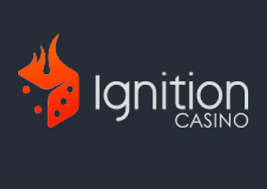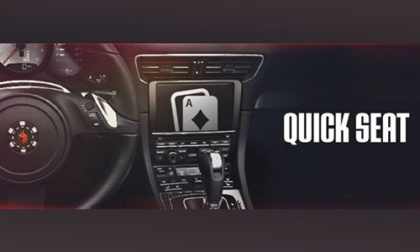Ignition Poker Introduces Quick Seat Lobby
We have discussed the progression of poker rooms trying to become more recreational player-friendly many, many times on this site. Sites are trying to find some sort of balance between protecting casual players from sharks and generating loads of rake from professional grinders, but lately, the industry has clearly been moving in the direction of the recreational player. Ignition Poker and sister site Bodog are the latest to implement a change that is meant to be rec-player friendly, launching a “Quick Seat” lobby for cash games.
 We have seen this sort of thing on other sites and networks, but in the case of Ignition and Bodog, the Quick Seat lobby is now the only seating option. Rather than the traditional list of tables, the Quick Seat lobby only allows players to select what type of table at which they want to sit. Players choose the game type (Hold’em, Omaha, or Omaha Hi/Lo), the Limit format (No-Limit, Pot-Limit, or Fixed-Limit), and the maximum number of seats at the table (two, six, or nine). After the selections are made, the poker client takes the player to a table with an open seat.
We have seen this sort of thing on other sites and networks, but in the case of Ignition and Bodog, the Quick Seat lobby is now the only seating option. Rather than the traditional list of tables, the Quick Seat lobby only allows players to select what type of table at which they want to sit. Players choose the game type (Hold’em, Omaha, or Omaha Hi/Lo), the Limit format (No-Limit, Pot-Limit, or Fixed-Limit), and the maximum number of seats at the table (two, six, or nine). After the selections are made, the poker client takes the player to a table with an open seat.
The goal here is to eliminate predatory play by sharks. Now, Ignition and Bodog already have anonymous tables which largely got rid of this sort of thing already, but the Quick Seat lobby is one more step. In a traditional cash game lobby, players can see what tables are running, how many players are seated, and often stats like average pot and average percent of players seeing the flop. Naturally, players can open a table to see the players and action for themselves before committing to a seat.
One big problem that developed from this was that seating scripts were created that scanned the lobbies and found ideal spots at which to seat the user of the software. And this wasn’t just finding a seat a table with high average pots. What these seating scripts did (and do) was look for particular players using hand history data that the user has. The tables are scanned, player names are fed into the user’s hand tracking software, and if players are discovered who are considered statistically weak or otherwise desirable, the script will put the user at their tables. Weaker players eventually figured out they were being targeted, often leaving the poker room as a result. This is clearly bad for the poker room’s business.
Anonymous tables are able to do away with most of this, as without screen names, players can’t be tracked. One would assume that the Quick Seat feature aims to weed out any remaining attempts to stalk a weaker player.
While this change has been met with praise from many, it is also generating a lot of criticism. Obviously, there are those who want to be able to use seating scripts or at least want to be able to engage in some sort of seat selection.
It is fairly reasonable to want to see which tables are empty, which have players and empty seats, and generally which tables look good, but with Quick Seat, you can’t do that. Those who like to start tables can’t do so without getting lucky. Those who don’t like to start tables can’t be assured the computer won’t seat them at an empty table. In both cases, the way to get to the table one wants is to let Quick Seat do what it wants, then close the table if it is unappealing and try again. Clearly, this can be a pain in the ass.
The above is probably the biggest problem for players who don’t want to start tables. As one poster on Two Plus Two said, “Yeah if I wanted to play heads up… I’d play heads up.”
Others have said they just sit out until the table gets enough players, which doesn’t do Ignition much good and simply serves to annoy those who want to play. And as much as Quick Seat is designed to protect recreational players, most recs don’t want to play heads-up or very short-handed, so automatically getting seated at an empty table is not going to make a recreational player happy.
Now, when Quick Seat works well, it can be great. What you often see in a traditional cash game lobby is people queueing up in a waiting list for a small set of full tables. Waiting lists are fine, but with Quick Seat, there can be times when players get seated at multiple full tables (obviously not full until the player is seated) very quickly. For instance, instead of there being two full tables of a certain type, each with long waiting lists, Quick Seat eliminates waiting lists and distributes all of those players at the tables, getting more games going and making more players happy.
The down side, as mentioned, is that if a player doesn’t like a table, he isn’t guaranteed to be seated at a different one if he tries Quick Seat again.
It will be interesting to see if Quick Seat affects Ignition’s player traffic. Ignition/Bodog is currently the largest U.S. facing online poker room with a seven-day average of 1,100 cash game players. According to PokerScout, that ranks it fourth overall out of all poker rooms and networks.




















COMMENTS